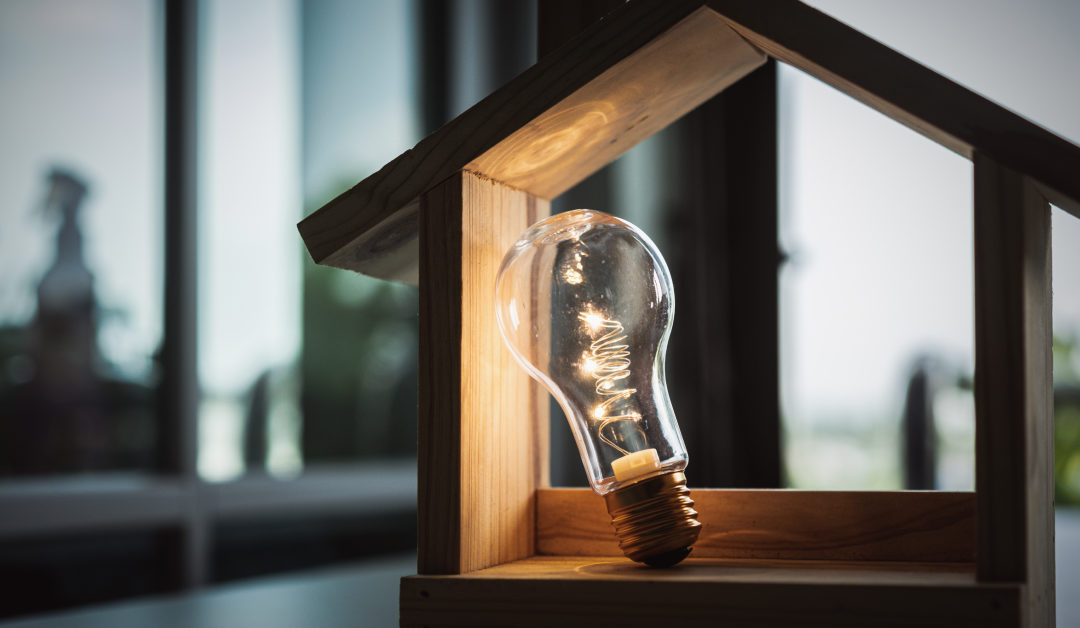
Business Energy Saving Tips
Using Make it Cheaper’s expert service to find a better deal for your business energy is one way to help cut the cost you pay for gas and electricity and add welcome dollars to your bottom line, but you should also look to reduce your energy usage wherever possible.
By following our energy saving tips, businesses can significantly cut the cost of their utility bills with little effort or expense. Not only will you reduce the cost of powering your business but you’ll also improve your green credentials and reduce your carbon footprint.
Air conditioning
It’s important to choose an air-conditioning system suitable for the size of space you are trying to cool. The power of air-conditioning systems are measured in Kilowatts, it’s recommended that you use 125 Watts per square meter of floor area to be cooled (in living/work areas).
When purchasing large electrical items ensure you pay attention to the energy rating labels found on all air-conditioners, fridges, freezers, dishwashers, clothes washers and clothes dryers. These labels use a star system to grade efficiency. They also estimate how much power the appliance is likely to consume in a year. This should give you an idea of the running costs.
Energy saving recommendations
- Use the Recycle function on the air conditioner. Cooling air from inside uses less power that cooling hot air from outside
- Service the unit. Clean the filters and vents, ensuring there’s no build-up of dust and debris, this will ensure the system runs efficiently.
Air-conditioning alternatives
There are several alternatives to traditional air-conditioning which can be viable options.
- Evaporative air-conditioners cost 80% less to run than conventional a/c units and cost half as much to purchase. They work by passing the warm air from outside through a series of wetted filter pads which cool the air via evaporation before passing it into the room to be cooled. As well as cooling, these types of units increase the humidity in the air, which is useful in drier climates. Capital cities where they work well include Perth, Adelaide, Melbourne, Canberra and Hobart, central Australia is also very suitable.
- Reverse cycle units – As well as being able to cool during summer months, reverse cycle air conditioning units can warm a premises during the winter months. They do this by extracting heat from the outside air (even on mild winter nights) and passing it through a condenser. The heat is extracted and used to warm the insides of the house. Reverse cycle units are very economical when it comes to warming a room.
- Ceiling fans are very cost effective solutions. Ceiling fans run at a fraction of the price (2 to 3 cents per hour) of air conditioners and can provide a welcome relief on a hot day. Sometimes however a fan just isn’t enough, so a way to save money is to run your air-conditioning unit at the same time as the fan but raise the thermostat 10 degrees. The room will remain cool and your air-conditioning appliance will use less power.
Lighting
There are many ways you can save money when lighting your office or home business. With the introduction of new energy efficient light bulbs it’s possible to reduce the amount of energy used by up to 80%
Ideas for saving money on lighting
- Install motion sensors to turn lights on and off depending on whether someone is in the room.
- Where appropriate, install light sensitive sensors to turn lights on at dusk and off at dawn.
- Incandescent lighting uses 80% more power when compared to Compact Fluorescent light (CFL) bulbs which also last 8 times longer.
- Fit energy saving light bulbs. They last 10 times longer than ordinary light bulbs and can save $80 over the lifetime of the bulb.
- Review the space you’re trying to light. Fluorescent lighting might be more suitable for large spaces.
- Clean the light fittings, this produces a brighter light and increases the life of the bulb.
- Where appropriate fit skylights, a free and natural way to light a room.
Refrigeration
When purchasing a fridge or freezer you need to ensure you buy one suitable for it’s purpose. Over filling or under filling a fridge / freezer leads to inefficiencies and greater energy consumption.
When choosing a fridge or freezer, look for ones with high energy efficiency ratings, the more stars the better.
Fridge freezer checks and quick wins
- Position freezers and fridges out of direct light.
- Ensure there is suitable air flow (at least 80mm round all sides) around the appliance.
- Regularly clean Motors, fans, hinges, condenser coils.
- Check the seals on doors and closing mechanisms are all in good condition.
- Defrost the freezer regularly to avoid the build up of ice.
- Ensure fan belts aren’t perished and the motor is aligned.
- Where necessary provide exit pipes or vents for hot air exhaust.
- Fit air curtains in walk-in cold rooms to reduce the transfer of air.
- Don’t re-stock during the hottest part of the day.
- Keep the appliance well stocked. Fill any large spaces with empty cardboard boxes (reduces the loss of cold air when opening the door).
Climate Control
Controlling the room temperature is key to saving money on your energy bill. For optimal energy savings it is recommended you cool your environment to 25ºC in summer and heat it to 20ºC in winter.
Every 1 degree increase in thermostat setting in winter will use 15% more energy. Every 1 degree decrease in summer will use 10% more energy.
Climate control quick wins
- Restrict who can adjust the thermostat.
- Locate the thermostat away from drafts, direct sunlight and mechanical equipment (photocopiers, computers etc).
- Only cool or heat areas that are being used frequently. There’s no point heating or cooling an area that’s rarely used (storage rooms, cleaning rooms etc).
- Windows – Fit reflective film, external shutters and internal blinds to reduce the amount of sunlight entering the building.
- Double glazing – if you’re building a new property look to incorporate suitable glazing.
- Fit draft excluders and auto door shutters. Sealed doors are better for cooling in the summer and keeping heat in during the winter.
- Ceiling insulation is an essential part to cooling your property in the summer and keeping it warm in the winter. Correctly installed loft insulation can keep indoors up to 10 degrees cooler during summer months.
- Consider fitting suitable roof tiles to reflect the sun’s rays or have the roof painted with heat reflective paint. This will reduce the amount of heat absorbed into the building during summer months.
Office Equipment
An average home business can save up to $200 by addressing appliances that are left on standby when not in use. Obviously the savings are even greater for small businesses with more employees and commercial premises.
LCD screens, air conditioners, photocopiers, computers, scanners, dishwashers, dvd players, TV’s are examples of appliances that tend to be left on standby. Getting into a habit of fully powering off these devices when not in use is a great way to save money on your bills.
Office equipment saving ideas
- Modern computers have the ability to hibernate or standby, use these settings from control panel to save power during inactivity
- Turn off PC’s and LCD screens at the end of the day
- Turn off printers and copiers at the end of the day
- When available utilise the sleep or power save options on photocopiers and printers
- Print on both sides of the paper.
- Have your employees ask themselves “Do I really need to print this document?”
- Turn lamps and lights off at the end of the day
- Use laptops instead of desktop PC’s, they use 80% less energy
- Ink jet printers use 90% less energy than laser printers
Solar Power
Once setup, solar systems can provide your business with free electricity. You save money straight away on your bills and in some states you’ll be paid for any excess energy you generate and feed into the national grid.
Solar can be used to heat water as well as generate electricity for the rest of your business.
Solar water heaters
Heating water can be one of the biggest energy users in a home and also a small business, solar water heaters can significantly reduce this cost.
The government provides substantial incentives for installing solar systems, these include;
- 50% tax reduction off the cost of a solar system purchase (30% for businesses with turnover greater than $2mm). This is achieved using the governments small businesses general tax break
- Renewable Energy Certificates (REC’S) which accompany solar system purchases and are tradeable.
- Solar credit program for installing grid connected systems.
- Feed in tariffs – In some states it’s possible to connect your solar system to the grid and be paid for feeding electricity in.
Other benefits include:
- Solar can save you 50 to 80% of your water heating energy consumption (based on Government approved TRNSYS modelling).
- Reduce your home business greenhouse gas emissions by 3-3.5 tonnes per year.
Solar energy generation
As well as using solar to heat water, solar can be used to generate your business electricity. Businesses that choose to install these solar units will benefit from free electricity.
In certain states you have the ability to feed any excess electricity into the grid. You will receive renewable energy certificates as part of the feed-In scheme that you can then sell.
Water
There are many ways you can save water and reduce the size of your bills in your business and home business.
Heating water uses the most electricity in a household and can also be a significant cost to businesses. Recent studies show that nearly a third of the average households energy use goes on heating water.
Commercial and small business water saving suggestions
- Have your boiler and heating system regularly serviced.
- Set the thermostat so it’s not too hot, the recommended setting is 60°C/140°F
- Ensure there is suitable insulation around the boiler and along the pipe work to keep the heat in.
- Where appropriate install an “On-demand” boiler. These heat the water when it’s required. These are suitable for both offices and homes.
- Choose the right size system according to the premises.
- Fit flow controllers, regulators and aerators to taps to limit the supply flow.
- Fit flow sensors to taps so they only run when objects / hands are placed under the sensor.
- Toilets can use up to 12 liters of water per flush, fitting dual flush cisterns or restricting the amount of water in the cistern will help.
- Where possible fit urinals as opposed this uses much less water.
- Maintenance check for leaking water pipes and dripping taps (a leaking tap can waste more that 2,000 liters of water each month.
- Check your water meter regularly and compare usage to other companies in your industry.
- Ask employees for their ideas on how best to save water in the business. Run incentives and publicise internally about the need to save water. This will raise awareness throughout the company of the need to save water.
Water saving measures for home businesses
- Where appropriate install an “On-demand” boiler. These heat the water when it’s required. These are suitable for both offices and homes.
- Have your boiler and heating system regularly serviced.
- Set the thermostat so it’s not too hot, the recommended setting is 60°C/140°F
- Ensure there is suitable insulation around the boiler and along the pipe work to keep the heat in.
- Install a water butt for the garden.
- Use greywater solutions.




